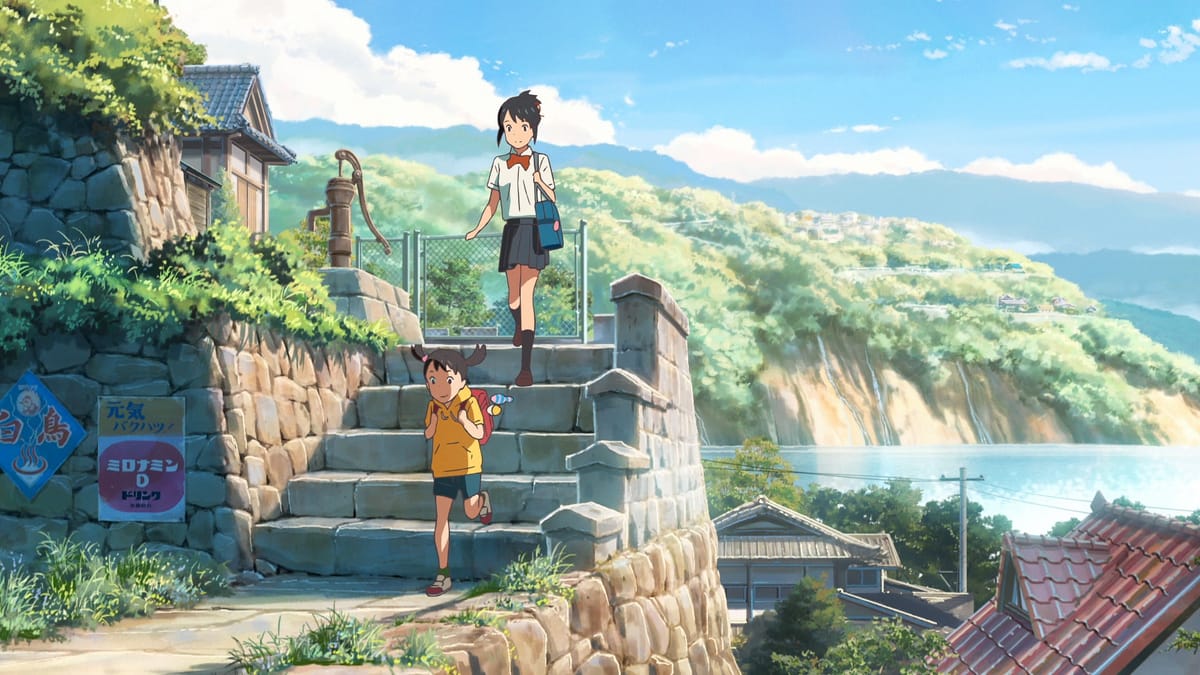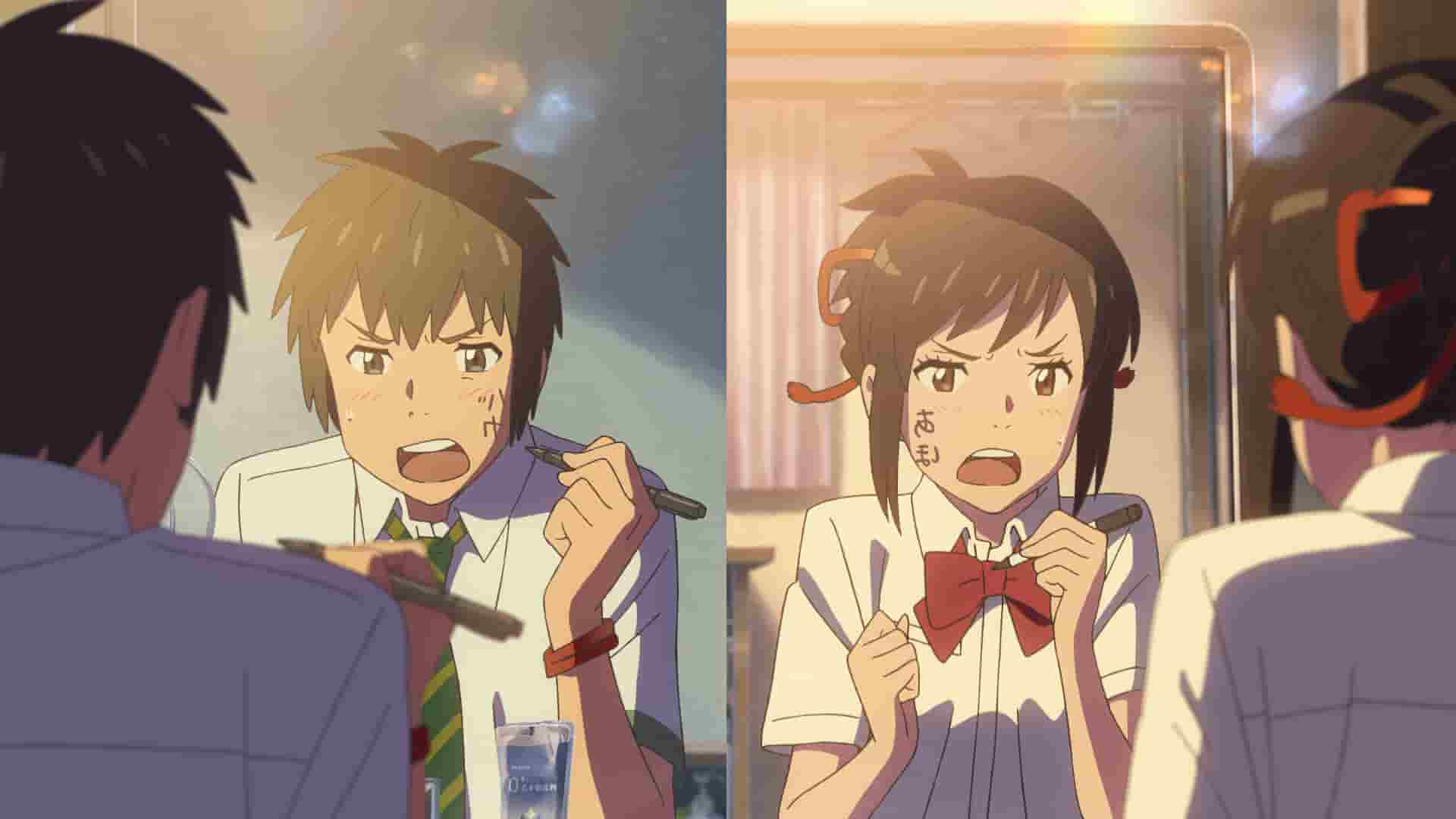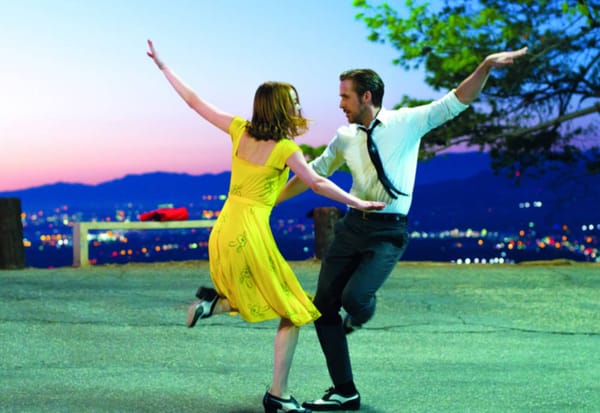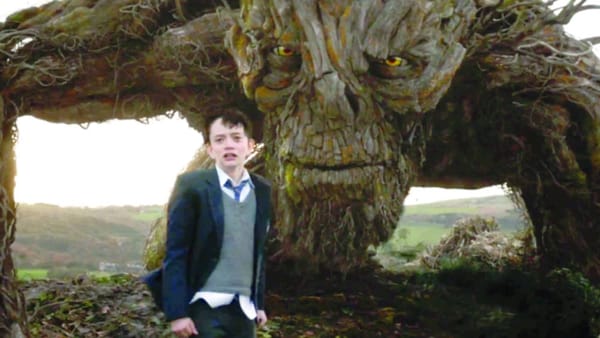Your Name: Freaky Friday by way of Kierkegaard
Your Name, the latest from Makoto Shinkai, combines body-swapping humour with a deep philosophical message

In his latest amine film Your Name, which has broken box-office records in Japan and beyond, director Makoto Shinkai chooses a plot-line which has a long pedigree: body swapping. Shuffling characters’ consciousnesses around is a trope that stretches back to the 19th Century and beyond. In Your Name, the two swappers are Taki, a handsome high-schooler living in Tokyo, and Mitsuha, who lives in Itomori, a small village surrounded by mountains; while Taki is bogged down with life in the big city, balancing school work with a waiter job, Mitsuha’s verdant surroundings form a different form of entrapment, since her family is responsible for the local shrine. They swap bodies intermittently, and the first section of the film deals with the two individuals finding out about each other through scrawled notes and mobile diary entries.
But while previous films such as Freaky Friday mainly simply revel in the sheer incongruity of two opposing individuals swapping bodies, who often learn a life lesson along the way before swapping back, Your Name goes for something subtler, and altogether more profound. That’s not to say that there’s no body-based humour in the film – there’s plenty of laughs to be had at the protagonists’ reactions to the swap – but rather Shinkai has taken the basic premise of body hopping and carefully grafted on a series of philosophical statements about time and the nature of reality.
While Taki and Mitsuha quickly find out about each other, and adapt to their new experiences with aplomb, the driving force of the narrative occurs when their swapping comes to an end. Around the midway point, a great calamity is revealed, which I imagine for many viewers will conjure comparisons to the recent Fukushima disaster, and the direction of the film changes abruptly. Such narrative twists are welcome, however: not only do they distance the film from obvious comparison to others that are similar, but the shifts are alluded to in earlier sequences. Shinkai, who also wrote the screenplay, and the book upon which it was based, has created a plot that delicately loops around and around itself, drawing links and connections in a structure that is as strong as the kumihimo cords that Mitsuha’s grandmother makes. Just as the success of Spirited Away in the Western world opened up numerous modern viewers to the idea that anime could be more than teenage-fodder, Your Name’s plot complexity acts as a riposte to anyone who says that animated films cannot be as serious as live-action fare.

Shinkai has been called ‘the New Miyazaki’ by some, and while he modestly denies such claims (never mind the fact that Miyazaki has recently come out of retirement), it’s easy to see why he has received such a moniker: Your Name’s animation is completely gorgeous, espousing a form of photo realism that is rarely seen in the animes that make it to this country, whilst also retaining a lightness of touch. Shinkai deftly balances the two contrasting settings: the hustle-bustle of a Tokyo metropolis and the sleepy traditions of Mitsuha’s Hida town. Several breathtaking sequences occur in the film – notably the frequent sped-up shots, which reveal Shinkai’s complete technical mastery. The director has also managed to create tangible links between visual elements, resulting in a strong rhythm of images that pulse throughout the film.
This sense of rhythm and motion is in no doubt helped along by the soundtrack, composed by the Japanese band Radwimps, which simmers and bubbles with energy. The lead single from the soundtrack, Zenzenzense, reached the top of the charts in Japan, and it’s easy to see why: it’s a fast-paced, four-to-the-floor rock track, with delicate guitar plucking and meaty riffs. However, while Shinkai places the soundtrack front and centre, this is sometimes to the detriment of the film itself. Several montage passages of the film function more as music videos to the band’s tracks above anything else, giving a sense that the film is in thrall to the music, rather than the other way around.
Despite that, Shinkai has created a tour-de-force of animation, which seemingly nobody can stop. It’s already conquered Japan, as well as China and much of Asia; with its combination of delicate imagery and robust plotting, its march is likely to continue.









